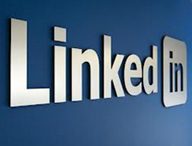Does a LinkedIn Recommendation Lose Value Over Time?
 I occasionally get requests from people I worked with as a peer, or who worked for me directly sometime I the past, asking for a recommendation for their LinkedIn profile. For many of these requests, I am happy to do so. If I have maintained a strong connection with you over the years, and kept in regular contact, I am likely to respond and write a recommendation highlighting my experience in working with you. But if we’re only loosely connected, or I haven’t heard from you for 5 or more years….I’ll likely ignore your request altogether.
I occasionally get requests from people I worked with as a peer, or who worked for me directly sometime I the past, asking for a recommendation for their LinkedIn profile. For many of these requests, I am happy to do so. If I have maintained a strong connection with you over the years, and kept in regular contact, I am likely to respond and write a recommendation highlighting my experience in working with you. But if we’re only loosely connected, or I haven’t heard from you for 5 or more years….I’ll likely ignore your request altogether.
Recommendations can be an important part of your LinkedIn profile. As a hiring manager, I most definitely reviewed these recommendations and scrutinized those who offered them, looking for
- Relevance of role (and whether their feedback had anything to do with the role the individual was applying for)
- Feedback from a variety of roles and levels (peers, managers, partners, direct reports, and so forth)
- Age of the recommendation (if the recommendation came 7 to 10 years ago, how relevant is that opinion going to be to current work experience?)
If we are just casual acquaintances, never having worked together in any capacity, I am just not likely to write you any kind of recommendation – nor should you be asking. In fact, the fact that you are asking me, someone you hardly know, to attach my name and reputation to your work history – I’m going to question the value of any recommendation already on your page, and the value of you within my social network.
Similarly if we are connected through some social circle or network, such as the AIIM Global Community group on LinkedIn, but are without any personal or professional connection between us, I will likely not pass along an official LinkedIn Introduction to someone else within my network.
Why am I so protective of my LinkedIn network? Unlike the very social Twitterverse where the more followers, the better chance to make connections and find valuable content and insights, LinkedIn is a “high-trust” social network. These kinds of requests – whether writing a recommendation or forwarding a connection request between two people – are high-trust activities, not a commoditized activity offered to someone I just met. Authenticity, active engagement, and network amplification (your ability to get others to take action) are all critical factors to these connection types. When I see a recommendation on a candidate’s profile by someone I know and trust, the value of that candidate goes up. When I see a connection request coming through a trusted advisor or friend, I automatically trust the quality of that connection – because I know that people within my circle of direct connections would only forward that connection if they believed the connection was of value.
I am happy to connect with new people, to extend the social dialog around relevant content, and to provide valuable connections to the rest of my network. My recommendation for those who are looking to build out their networks – don’t abuse the LinkedIn platform, because you dilute their relevance. Be authentic.




